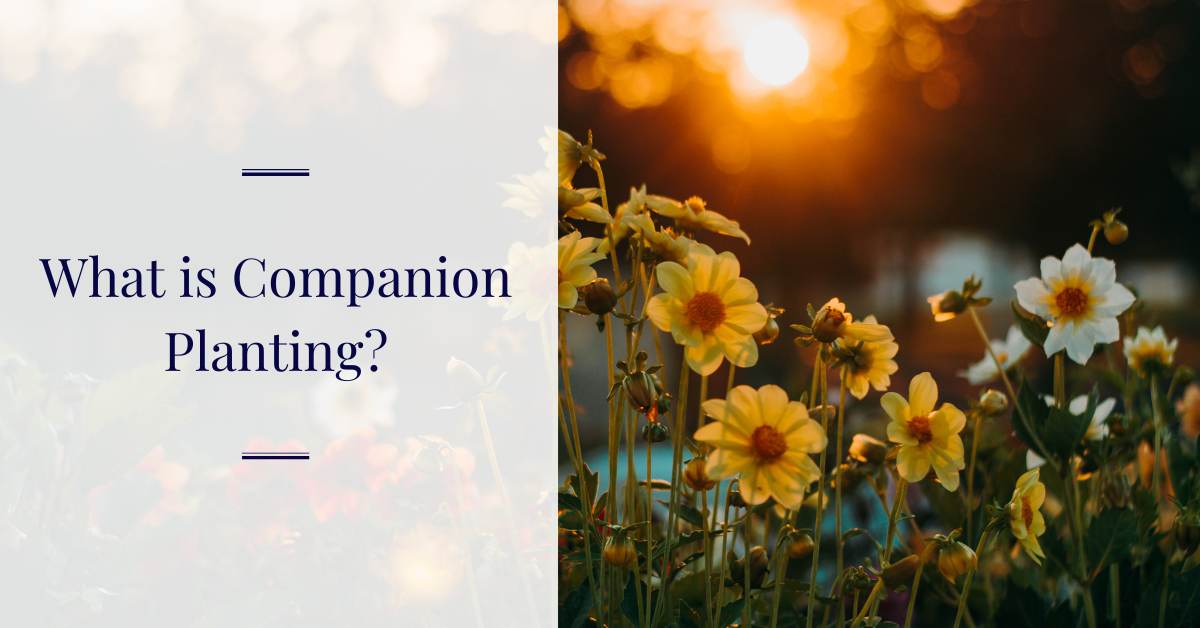
What is Companion Planting?
Companion planting involves planting two or more plants together to form an association from which all or plants benefit as they provide each other with physical support. Companion planting can create an efficient use of space, reduce disease and prevent pests.
Making use of Space in your Garden:
You can make the most of your space by planting or ‘intercropping’ fast-maturing plants in between bigger, slower-maturing plants. For example planting Brussels sprouts or sweetcorn in between lettuce or radish. The smaller plants will be harvested before the bigger plants grow and overshadow them. Companion planting can also make efficient use of space underground. For example planting deep-rooted carrots among shallower-rooted onions, as either crops casts heavy shade, therefore there is little competition for sun light. Another benefit to this combination is that the scent of onions prevents carrot flies from finding the carrots.
Companion Planting to Prevent Pests and Disease:
Smell Test
As well as carrot/onion combinations, other scented plants are also claimed to deter pests. For example, coriander has been found to deter unwanted insects from basil and parsley. Strawberry farmers have also been known to plant garlic in growbags containing strawberries as the scent of the garlic is known to repel aphids (greenfly).
Rose growers also use garlic, planting it near roses in the hope of similar benefits. Tagetes (French marigolds) deter whitefly and thrips from tomatoes and other crops. Research has found that the chemical limonene, which is secreted by the marigolds and is also found in citrus peel, is a natural insect repellent. However by mixing tomatoes with other plants, without Tagetes, also has a similar effect. Companion planting can therefore reduce populations of unwanted insects compared to a single type of crop plant growing alone.
Hide and Seek
For cabbage family plants such as cabbages and cauliflower, covering the soil by growing a layer of low-growing clover and trefoil makes the plants less visible to the cabbage root fly, therefore protecting the crop. Cabbage root fly finds its hosts by the appearance of the plant’s leaves, however its detection abilities are impaired by the clover/trefoil mixture. Also keeping soil covered by plants, rather than leaving soil bare, is best practice to improve the overall soil health and increasing carbon storage.

Resilience
Ecology suggests that combinations of plants, similar to those found in nature, are less susceptible to outbreaks of disease. By planting a greater number of different plants together can provide greater resistance to severe outbreaks. For example roses we see in mixed borders, where they are interplanted with a wide range of herbaceous flowers, grasses and other shrubs are less prone to pests and disease than rose borders containing solely roses.
Encouraging Natural Enemies
Companion planting can also be used to attract insects that parasitise or prey on unwanted insects by providing nectar- and pollen-rich flowers. Growing alyssum (Lobularia maritima) with lettuce has been proven to reduce aphid populations as its rich nectar and pollen attract beneficial insects that are natural predators of aphids. Gardeners often plant insect-friendly flowers such as Calendula (pot marigolds) and nasturtiums near runner beans and tomatoes in the hope of similar effects.
Companion planting to provide mutual support
The ‘three sisters’ system of cropping maize, pumpkins and climbing beans is a well-known example of using companion planting to provide physical support. In this system the crops grow well, and very attractively, together if given sufficient space. The maize (sweetcorn) supports the beans, while the squash uses the space between the plants, shading the soil and suppressing the weeds. It is not clear whether using this method produces a greater yield than growing crops individually. However, it makes for an efficient use of space and means you don’t need to use any other materials or spend time to staking your beans.
Contacts Us:
Blue Iris Landscapes have over 25 years of landscaping and horticultural experience therefore you can assure you’re getting a quality service. Email us at info@blueirislandscapes.co.uk or call our office on 01782396168.
Why not visit our Facebook page to stay up to date with all of our latest news!
